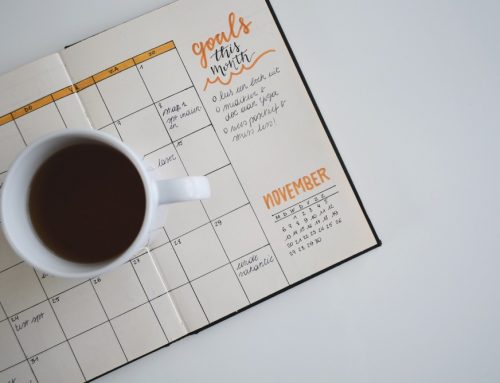I’m going to be honest with you, I never thought I’d get here.
Growing up, it seemed like everyone around me had that accepted I was a writer before I did. I published my first book, The Adventures of Hobnob and Raisin, at 13. I spent hours of my free time in middle school pouring creative thought onto a blank page, and I would pretty regularly find myself waking at all hours of the night in order to jot down an idea, or type out a sentence on my phone just right.
So what was the big hold up you might ask? Why was I so insistent on the notion of ‘not yet being a writer?’
It’s because I fundamentally understood that to be a writer, a girl had towrite.
Substantially.
Consistently.
Publicly.
Now, of course, your definition may vary — that’s the beauty of the world, you can call yourself whatever you like — but for me, being a writer meant writing as a routine. In my mind, it meant carving out hours of the day to perform an obligation to oneself, the act of writing a commitment to self-expression with something at the end to show for it — and preferably to an audience.
For reasons unbeknownst to me, this meant being one of those people who manage to write at least 1000 words per day, everyday. So, I’d like to share with you how I got there…
(yes, nice to meet you — I am finally calling myself a real writer!)
Wake Up And Smell The Words
If I hear another writer tell me to wakeup at 5am to write, I’m going to cry.
Not because they’re wrong, but because the idea of getting less than 8 hours of solid sleep makes me weepy.
Instead of getting myself out of bed at an ungodly hour, I just prioritize using my morning effectively — 7am, you’ll do just fine — and building on the habits I’d like to take with me into a successful future.
This means:
- no laying in bed procrastinating the day. I’m awake, I get right up.
- no more than 15 minutes on my phone to reply to messages (most of my family are across the Atlantic, after all, and the time difference is always fun)
- no breakfast until I’ve written my first 500 words (it might seem unduly strict, but food/hunger is an excellent motivator and my appetite only really kicks in around 10)
After the first half of my writing for the day is complete, I tend to leave the rest for any spare moments I get throughout the day. Writing is not my full time job, so this means making space for it around my other responsibilities.
I write on the bus, I write while I walk (the inventor of voice-to-text is a bonafide genius), and as funny as it sounds, I even write in my head.
The difference between pre-writer me, and the writing I consider my self to be now, is that my work is now built around my nature; I’ve always been a bit of an over-thinker, but now my effort of thought is put towards more useful endeavors such as thinking about my articles before, during, and after I write them.
You’d be surprised how talented the brain is at solving problems just by passively thinking of them. In this sense, I work on my writing while I’m doing the dishes or taking a shower, so that the second my butt hits the seat of my chair at the kitchen table — I know I’m ready to write.
Divide And Conquer (Even If It’s Crap)
I used to think the idea of consistently churning out 1000 words per day was incredibly daunting. Looking back, the only reason I had this belief was because I was unconsciously holding my hypothetical 1000 words to a long list of unnecessary standards.
In order for my 1000 words to count, I thought they needed to be:
- consecutive
- single-subject
- high-quality
- of purpose
Now when I write, I actually made an effort to switch up the content I’m writing about with my 1000 words. Assigning myself one single topic, for one single sitting feels a lot like doing homework for school. Turns out, I’m my own boss now and I can write about whatever it is that’s inspiring to me in that moment.
Today it was about how I learned to write 1000 words. Here we are at word 745 and I’m no-where close to running out of steam — but that’s just for today.
There are other days where writing 150 words on 6.7 different topics is the only feasible way I’m ever going to hit my target. It helps to remember that 100 times 10 is also just as valuable as 1000 times 1. Words are just words and they all count.
Then I learned to stop caring if my words were crap. Really, the way I see it is that 1000 words of utter bullshit will always be more helpful to you as a writer than an empty page of perfection.
Only dead things are perfect and I’m not altogether against the notion that in order for the really valuable writing stuff to come through, sometimes you gotta room for it by writing junk. Better out than in, hey?
Lastly, one of the single most freeing things I’ve ever done for my writing career, was ditching the idea that my 1000 words need to have a set purpose.
Yes, it’s important that your writing doesn’t devolve into a glorified version of keeping a diary, but at the end of the day, fostering your habit of writing is an act of self-love for future you. I don’t care if what you write never sees the publish button or the light of day — and I certainly don’t care if it all gets deleted a week later.
There’s always something to learn from it, it and the point is that you wrote.
That’s 1000 words exactly— done.
Now let’s go make some breakfast.





